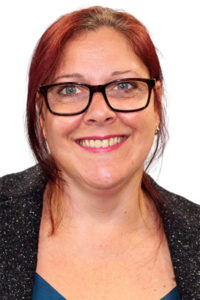
Studies have suggested that people with type 1 diabetes have a two to three times higher prevalence of depression and approximately double the rate of suicide compared to the general population. Despite increasing awareness, mental health issues, including suicide and self-injury, largely remain “hidden problems,” according to Katharine Barnard, PhD, Southern Health NHS Foundation Trust, United Kingdom.
“The mental burden of diabetes remains grossly underappreciated,” she said. “We believe that suicide is at least twice as prevalent among people with type 1 diabetes—particularly because of easy access to insulin—than it is among the general population. It’s often difficult to identify because there is such a stigma associated with it. But many people, myself included, think it’s probably closer to four times higher.”
Dr. Barnard and a panel of experts will discuss strategies and initiatives to address this mental health crisis during the session Suicide and Self-Injury—Unveiling and Addressing the Hidden Nightmare in Diabetes on Friday, June 3. The session, which begins at 4:15 p.m. CT in La Nouvelle Orleans Ballroom B at the convention center, will also be livestreamed for virtual attendees.
Dr. Barnard spearheaded the creation of the RESCUE Collaborative Community, an international group of key stakeholders, including medical professionals, psychologists, advocates, charities, and people living with diabetes. The group provides resources and identifies strategies to reduce self-injury and suicidal acts among diabetes patients.
“The community was established in 2021 in partnership with the U.S. Food and Drug Administration with the overarching goal to improve awareness and understanding of the risks for self-harm and suicide in people with diabetes,” Dr. Barnard said. “We’re working to provide education and support materials for health care professionals so they are better able to identify and initiate meaningful and useful conversations for people they suspect to be at risk, as well as materials to provide appropriate support and intervention for those individuals who are at risk.”
Identifying patients at risk and having those initial conversations are key challenges that health care professionals must overcome, said session panelist Kelly L. Close, MBA, of the diaTribe Foundation.
“Not only are health care providers constrained by the pressure to see as many patients in a day as possible, which limits the amount of time they can spend with each patient, there is still this massive stigma making it hard for both providers and patients to talk about suicidal thoughts or thoughts of self-harm,” Close said. “The trends in suicide among people with diabetes have gotten worse, so we have to begin these conversations. We need to look at it in a holistic, multi-stakeholder way and, through initiatives like the RESCUE Community, we hope we can raise awareness and help providers become more confident in addressing mental health issues with their patients.”
Other panelists include Yiduo Wu, PhD, U.S. Food and Drug Administration; Shideh Majidi, MD, Children’s National Hospital; and Daniel R. Chernavvsky, MD, University of Virginia.
[sub-post-content]